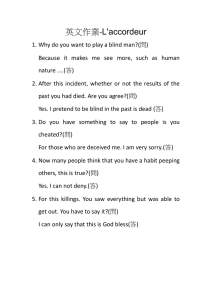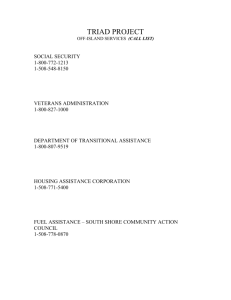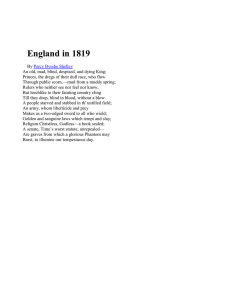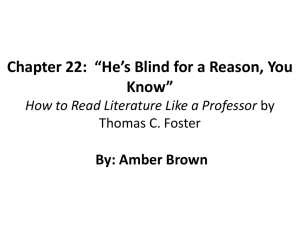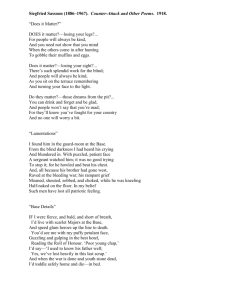Inclusive EFL for Blind Students: Teacher Roles & Challenges
advertisement
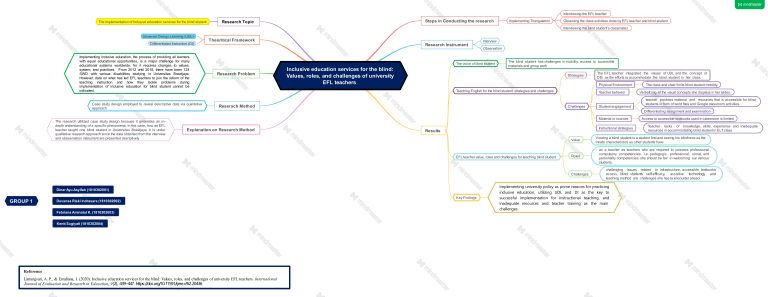
Interviewing the EFL teacher The Implementation of Inclusive education services for the blind student Steps in Conducting the research Research Topic Implementing Triangulation Observing the class activities done by EFL teacher and blind student Interviewing the blind student's classmates Universal Design Learning (UDL) Differentiated Instruction (DI) Implementing inclusive education, the process of providing all learners with equal educational opportunities, is a major challenge for many educational systems worldwide, for it requires changes to values, system, and practices. From 2012 until 2018, there have been 124 SWD with various disabilities studying in Universitas Brawijaya. However, data on what has led EFL teachers to join the reform of the teaching instruction and how they tackle problems during implementation of inclusive education for blind student cannot be indicated. Case study design employed to reveal descriptive data via qualitative approach The research utlilized case study design because it generates an indepth understanding of a specific phenomena, in this case, how an EFL teacher taught one blind student in Universitas Brawijaya. It is under qualitative research approach since the data obtained from the interview and obeservation instrument are presented desriptively. Theoritical Framework Research Instrument Interview Observation The voice of blind student Research Problem Inclusive education services for the blind: Values, roles, and challenges of university EFL teachers The blind student has challenges in mobility, access to accessible materials and group work Strategies Physical Environment Teaching English for the blind student: strategies and challenges Reserach Method Teacher behavior Challanges Student engagement Material or sources Explanation on Research Method Instructional strategies Results Value Roles Challanges Dinar Ayu Asyifah (1810302001) Devansa Riski Indrasara (1810302002) Febriana Aminatul K. (1810302003) Kenti Sugiyati (1810302004) Reference Lintangsari, A. P., & Emaliana, I. (2020). Inclusive education services for the blind: Values, roles, and challenges of university EFL teachers. International Journal of Evaluation and Research in Education, 9(2), 439–447. https://doi.org/10.11591/ijere.v9i2.20436 The class and chair limits blind student mobility Verbalizing all the visual concepts she displays in her slides. teacher provides material and resources that is accessible for blind students in form of word files and Google classroom activities. Differentiating assignment and examination EFL teacher value, roles and challenges for teaching blind student GROUP 1 The EFL teacher integrated the values of UDL and the concept of DIS as the efforts to accommodate the blind student in her class. Key Findings Access to accessible textbooks used in classroom is limited Teacher lacks of knowledge, skills, experience and inadequate resources in accommodating blind student in ELT class Viewing a blind student is a student first and seeing his blindness as the innate characteristics as other students have as a teacher as teachers who are required to possess professional compulsory competencies, i.e. pedagogic, professional, social, and personality competencies, she should be fair in welcoming our various students. challenging issues related to infrastructure, accessible textbooks access, blind students’ self-efficacy, assistive technology and teaching method are challenges she has to encounter ahead. Implementing university policy as prime reasons for practicing inclusive education, utilizing UDL and DI as the key to successful implementation for instructional teaching, and inadequate resources and teacher training as the main challenges.
